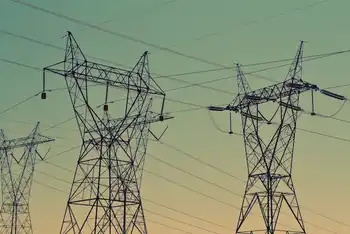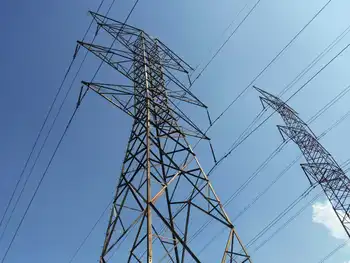Richmond fails to shine during Earth Hour
The city recorded the second worst performance in B.C. during the recent Earth Hour, an annual global time slot set aside by the World Wildlife Federation to address and highlight climate change by reducing electricity consumption.
According to figures released by BC Hydro, Richmond's thirst for electricity between 8:30 and 9:30 p.m. was only quenched by a mere 0.3 per cent, down significantly from last year's three per cent.
Only New Westminster (0.1 per cent) turned in a weaker scorecard, with the overall provincial drop in consumption being recorded at 1.1 per cent.
Richmond's poorer effort, however, was in line with the B.C. trend this year, with the province's Earth Hour performance dipping from a two per cent reduction in consumption in 2008.
A colder than normal March is being blamed for the apparent drop in participation.
But one Richmondite who did take part in the energy-saving hour, Madeleine Bates, said the City of Richmond should be ashamed, despite it turning off 60 per cent of the Richmond Olympic Oval's lights.
"Did the city not know about putting the lights out for that hour?" said Bates, who lives near Minoru Park and city hall.
"Minoru Park was fully lit, but there were no games of soccer or anything on. And there were several floors on city hall still with the lights on.
"All over the world, people are doing their share."
The city did, in fact, switch off for Earth Hour approximately 200 of the Olympic oval's 300 lights over the main hall, creating an energy saving of 1,000 watts of power per light.
And city spokesperson Diana Waltmann insisted all city hall lights, apart from those in elevator and stairwells, are automatically switched off. "The dry weather also allowed us to turn off the city's 200 pump stations," Waltmann said. "Minoru Park was booked by an organization, the lights go on whether people turn up or not. The tennis and basketball lights are left on to encourage people to use them."
Waltmann added that the city has saved 2.5 gigawatts of energy, enough to power 240 homes, by upgrading lighting.
In total this year, British Columbians saved 72.67 megawatts of electricity during Earth Hour, the equivalent of turning off 1.5 million lights.
The highest drop in consumption — 4.6 per cent — was recorded in Pemberton. Eighty-four communities throughout the province participated in Earth Hour this year.
If British Columbians implemented the same conservation measures just one hour every evening, the combined savings would be enough to power more than 2,400 homes for an entire year.
Earth Hour was designed as a symbolic event in the global effort to address climate change by showing how simple changes can affect the planet, said Melissa Tupper, Vancouver spokeswoman for WWF.
The WWF pioneered Earth Hour through its Australian chapter in 2007.
"It's not about energy conservation during the hour, that's not going to solve things," said Tupper.
"It's more the message people are sending by participating in Earth Hour."
Savings in individual communities: Abbotsford 3.8 per cent; New Westminster 0.1; Burnaby 1.4; North Vancouver 2.7; Coquitlam 2.9; Port Coquitlam 3.1; Delta 1.2; Bowen Island 3.1; Prince George 1.5; Kamloops 1.1; Langley Township 2.1; Maple Ridge 3.1; Surrey 1.5; Vancouver 1.3; Victoria 3.1.
Related News

Clean B.C. is quietly using coal and gas power from out of province
VANCOUVER - British Columbians naturally assume they’re using clean power when they fire up holiday lights, juice up a cell phone or plug in a shiny new electric car.
That’s the message conveyed in advertisements for the CleanBC initiative launched by the NDP government, which has spent $3.17 million on a CleanBC “information campaign,” including almost $570,000 for focus group testing and telephone town halls, according to the B.C. finance ministry.
“We’ll reduce air pollution by shifting to clean B.C. energy,” say the CleanBC ads, which feature scenic photos of hydro reservoirs. “CleanBC: Our Nature. Our Power. Our Future.”
Yet…





